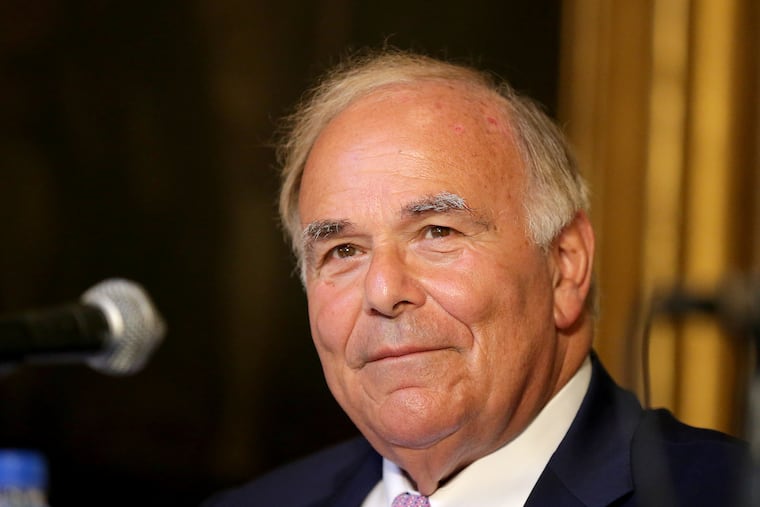Fast Eddie’s put himself on the line for safe injection sites. So should Mayor Kenney. | Mike Newall
Rendell's approach to opening a safe-injection site is what we need in Philly, which has the worst death rate of any major city in the country. It's do-or-die here — literally.

Ed Rendell's got his prison tennis whites ready.
Who's ready to suit up with him?
I should explain: As he did in 1992, when he volunteered to go to prison to defend the city's first needle exchange, Fast Eddie is now putting himself on the line for safe injection sites. Tuesday evening he told my colleague Aubrey Whelan that he's joined the board of Safehouse, a new nonprofit aimed at opening Philadelphia's — and perhaps the country's — first safe injection site.
And, despite the feds' vows to crack down on a site, Rendell says he's prepared to go to prison for it — largely, he joked, because he thinks he can get a crack at the tennis courts at the Allenwood federal lockup.
If the feds come for you, Ed, sign me up for a few sets. Because your approach to opening a safe injection site is what we need in Philly, which has the worst death rate of any major city in the country. It's do-or-die here — literally.
Rendell's real motivation lies in a truth that has long defined this crisis: Everyone knows someone who's died of an overdose. Even our former mayor and governor, whose dear friend lost a son to addiction in 2016.
Sadly, the reach of this crisis will drive our response to it — in a way it hasn't before. Safehouse's new president, Jose Benitez, who also runs the city needle exchange, has said the group is in conversation with donors who have lost family members. Grief will save lives. That's where we are right now.
Benitez and Rendell and their third board member, Ronda Goldfein — the AIDS Law Project of Pennsylvania's executive director — stand with a formidable lineup of Philadelphia do-gooders, an advisory board that feels strategically picked to dare the feds to come knocking.
Along with the city's two top health officials and the directors of Temple's health system and Drexel's public health school, there's also a literal living saint advising Safehouse — Sister Mary Scullion, one of the country's most prominent advocates for the homeless.
Just try to lock her up, boys.
Forgive me if I sound celebratory. But it is encouraging to see how far we've come — early last year, when librarians were reversing overdoses in Kensington, advocates were telling me that the best shot we had at enacting this lifesaving measure was to hope Mayor Kenney would permit a site to open deep into his second term. When he, like Rendell, would no longer be lashed to voters' whims. To Kenney's credit, he's permitted a site in his first term. And that shows advocacy and attention can work.
For now, Rendell is a shield. But he's also the city's most prominent standard-bearer for safe injection sites — the kind that, as far as we've come in this process, Philly hasn't seen yet. Our city is the epicenter of the nation's urban overdose crisis. We should be the staging ground for the response.
For a year, Kenney and other progressives in city government have allowed advocates and health officials to quietly pursue an idea once thought too radical to even consider. That's a radical move in and of itself. But so far, Kenney has signaled his support for a site by letting it happen, not by leading the charge. Now we need something more from him.
Fast Eddie and Sister Mary and their colleagues at Safehouse have put themselves on the front lines And it's time for the mayor to break out his tennis shoes, too.